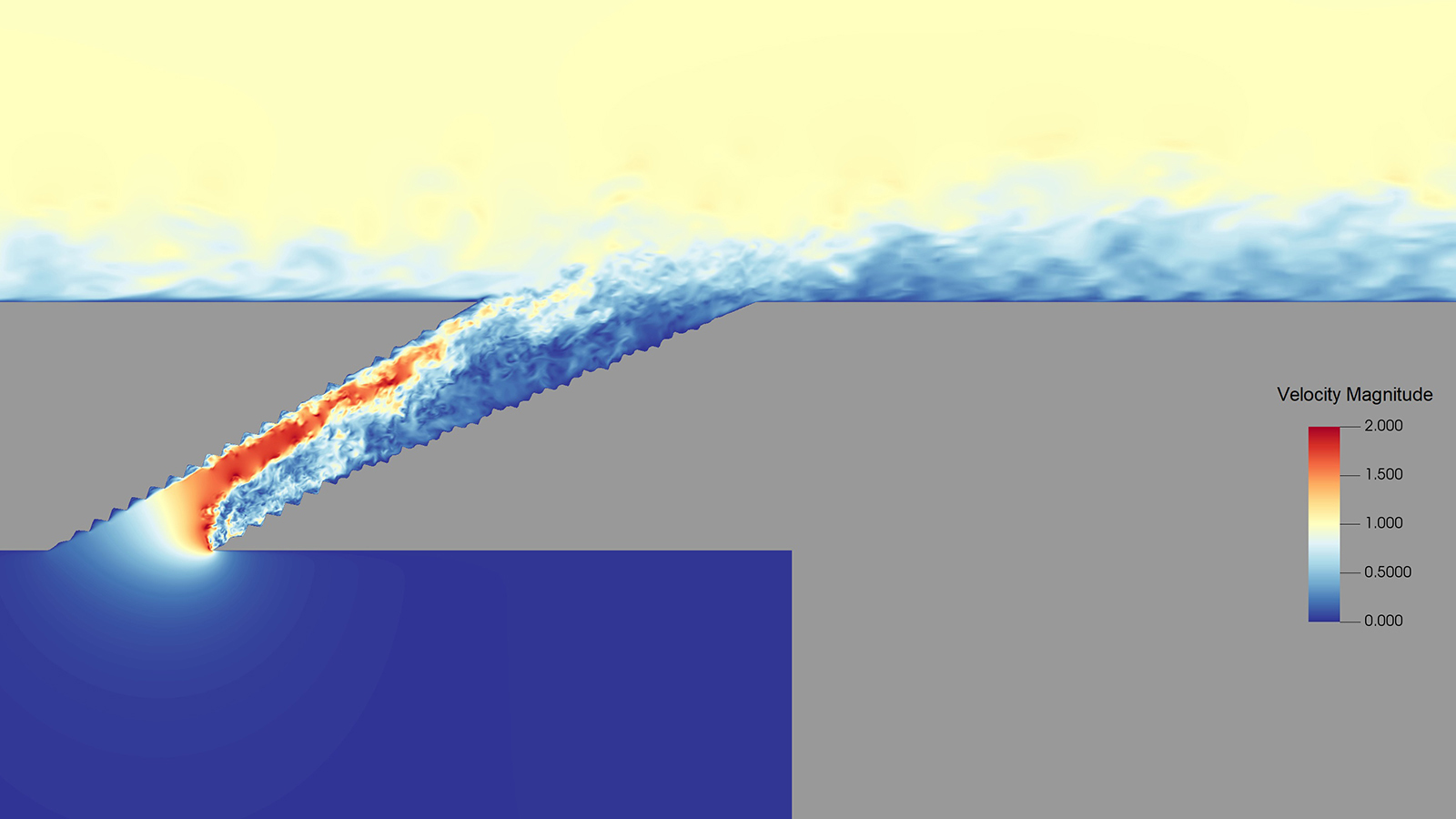The ALCF’s Industry Partnerships Program is designed to expand the facility’s community of industry users by engaging with companies of all sizes, from startups to Fortune 500 corporations, that could benefit from ALCF computing systems and expertise.
With state-of-the-art simulation, data analysis, and machine learning capabilities, ALCF supercomputing and AI resources enable companies to tackle R&D challenges that are too computationally demanding for traditional computing clusters. Access to ALCF systems allows industry researchers to create higher-fidelity models, achieve more accurate predictions, and quickly analyze massive amounts of data. The results enable companies to accelerate critical breakthroughs, verify uncertainties, and reduce the need to build costly prototypes.
The ALCF has strengthened its industry outreach efforts through collaborations with other Argonne user facilities and divisions, including the Science and Technology Partnership Outreach (STPO) division. This approach has offered a more comprehensive understanding of the laboratory’s resources, resulting in increased engagement with a number of companies.
Furthermore, the ALCF continued to play an active role in guiding the DOE Exascale Computing Project’s Industry and Agency Council, an advisory group comprising senior executives from leading U.S. companies and government agencies. This collaboration focused on deploying exascale computing to enhance products and services, fostering innovation and advancement in various industries.
Ultimately, ALCF-industry collaborations help to stimulate technological and engineering advances while bolstering the nation’s innovation infrastructure.
Driving Innovation for Industry
Here are some examples of how ALCF resources are helping companies to advance their R&D efforts.
3M Reduces Improves Energy Efficiency of Manufacturing Process
As part of DOE’s HPC for Energy Innovation (HPC4EI) program, researchers from 3M are working with Argonne to leverage ALCF supercomputers and AI to improve the energy efficiency of a manufacturing process used to produce melt-blown nonwoven materials. This extremely energy-intensive process is widely used by 3M to produce filters, fabrics, and insulation materials, as well as the N95 mask used for protection during the COVID-19 pandemic. By using ALCF computing resources to pair computational fluid dynamics simulations and machine learning techniques, the Argonne-3M collaboration is working to reduce energy consumption by 20%, which would save the industry nearly 50 gigawatt hours per year, without compromising material quality. To learn more about this collaboration, read this article from HPE.
ComEd Prepares for the Impacts of Climate Change
The ComEd energy company is partnering with Argonne to understand and prepare for the impacts of climate change. The team is using ALCF resources to dynamically downscale global climate models, providing projections and analysis for more localized areas. Their work is providing an understanding of how climate change may affect ComEd’s distribution grid and highlights the need for strategies that adapt to future climate conditions.
Dow Chemical Employs HPC and ML to Optimize Manufacturing Equipment
Dow Chemical is working with Argonne on a HPC4EI project aimed at optimizing the efficiency of gas-liquid turbulent jet mixers used in chemical manufacturing. The team is using machine learning (ML) techniques in conjunction with computational fluid dynamics simulations to speed up and improve design optimization for its advanced mixing equipment. Ultimately, the team’s work will lead to an efficient framework combining ML and HPC for optimizing process equipment, and will provide a demonstration case for ML approaches to enable wider adoption across the chemical industry.

Raytheon Develops Multi-Fidelity HPC Simulation and AI Tools to Improve Jet Engine Durability and Efficiency
With support from DOE’s HPC4EI program, researchers from Raytheon Technologies Research Center are working with Argonne to develop reduced-order deep learning surrogate models to capture the impact of manufacturing uncertainties on the performance of film cooling schemes used for thermal management of aviation gas turbines. Reliable film cooling drives durability and thermal efficiency in gas turbine engines, but is greatly sensitive to variations in the shape of cooling holes due to surface roughness induced by the manufacturing process. To this end, the team leveraged ALCF supercomputers and Argonne’s highly scalable nekRS solver to perform morphology-resolved computational fluid dynamics simulations of gas turbine film cooling schemes incorporating surface roughness effects. High-fidelity datasets from these simulations will be combined with data from coarse-grained simulations to develop multi-fidelity deep learning surrogate models to predict the impact of surface roughness on film cooling effectiveness. The team’s framework aims to help the company improve the fuel efficiency and durability of aircraft engines while reducing design times and costs. To learn more about this collaboration, read this article from HPE.
Solar Turbines Models Carbon Capture Technology for Use in Industrial Gas Turbines
Researchers from Solar Turbines Inc. are partnering with Argonne on an HPC4EI project aimed at modeling cost-effective carbon capture technologies for industrial gas turbines used for power generation, marine propulsion, and oil and gas production. With the goal of reducing CO2 emissions, the team is using high-fidelity large eddy simulation-based modeling to optimize the performance of a novel carbon capture system on Solar Turbines’ industrial gas turbines. Through this project, the company aims to shave months or even years off the product testing and development process, helping to accelerate the time-to-adoption of this promising new technology.
TAE Technologies Advances Fusion Energy Research
As part of the ECP’s Industry Agency Council, TAE Technologies continues to explore how DOE supercomputers can help accelerate their experimental research program, which is aimed at developing a commercially viable fusion-based electricity generator. Using ECP software tools, the TAE team successfully demonstrated compute capability for two of their HPC codes, showing strong scaling results on the ALCF’s Theta supercomputer. With past INCITE awards, TAE researchers performed simulations on ALCF computing resources to better understand the microscale and macroscale kinetic plasma physics in an advanced field-reversed configuration plasma device, providing insights to help inform the design of a future prototype reactor.